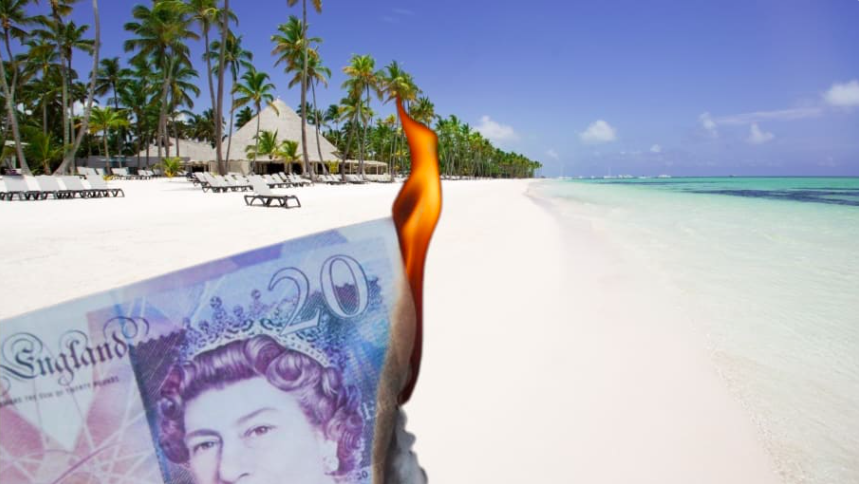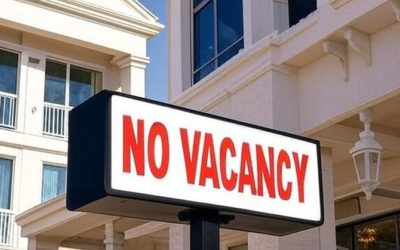Timeshare membership is presented as many things: A financial investment, an investment in your happiness, a quality guarantee for future accommodation, a way to save money?… The list goes on.
Sales patter aside, what do you need to know?

Luxury.
In the 80s and 90s a lot of people bought timeshare. This was before the internet, and a consumer’s only source of information about their package holiday was the glossy brochure in Thomas Cook.
Timeshare operations sold aggressively to holidaymakers frustrated with the disconnect between the airbrushed images and the 2 star reality greeting their tired family on arrival at the actual hotel.
Timeshare resorts were 5 star quality and designed to impress. Plus the exchange facility meant that when you went to other destinations you could expect the same luxury. People wanted this upgrade and were happy to pay.
The reality? “Yes, timeshare delivered luxury, and it still does,” agrees Steven Warner, a timeshare conditions expert at European Consumer Claims (ECC). “However lots of regular hotels and resorts do too, and in 2021 nobody relies on a package tour brochure’s accuracy. User generated review sites like Tripadvisor make it next to impossible to disguise poor quality accommodation with clever photography.”
Exclusivity
Timeshare resorts in their heyday were largely purpose built, and were for the exclusive use of members or exchange guests from other clubs.
If you wanted in, you paid. Timeshare memberships involve a large upfront ‘joining fee’ and then an annual maintenance charge per week roughly equal to staying in that standard of accommodation for the same time period. People were happy with that deal and today over 20 million households holiday through timeshare memberships.
The reality: “Exclusivity is something all of us value and timeshare resorts did an amazing job of monetising it,” says Steven Warner. “Unfortunately, because of a worldwide downturn in new member sales thanks to the already discussed freely available, accurate information on resort quality, resorts have largely abandoned the commitment to exclusivity.
“The resort bosses have allowed regular holidaymakers to book empty timeshare inventory on Booking.com, Expedia and other accommodation sites.”
Steven believes that timeshare resorts have shot themselves in the foot with this approach. “Sure, they gave themselves a much needed revenue injection in the short term by renting out the empty units to non members,” says Steven. “But to the member who paid tens of thousands of pounds to join an exclusive club it is a kick in the teeth. Certainly it removes any motivation for new members to join up as they can now book the same complex without any upfront investment or commitment.”
A way to save money
Back in the 80s and 90s many resorts had a ‘financial logic’ pitch designed to show how buying timeshare would save a holidaymaker money over ten years or more. Originally a large part of the financial logic pitch was that the member was fixing today’s prices for the future.
The reality: Most resorts have long since given up trying to push this narrative. “This no longer holds water, if it ever did,” explains Warner. “The value of owning timeshare vs regular holiday stays has been written about ad infinitum. There is no question that it is more expensive to take the same holidays via timeshare membership rather than by booking through Expedia et al.
“Timeshare annual fees are around the same as the cost to a non member checking into the resort through ordinary booking sites, and those fees rise every year at least as much as inflation. Add on the sometimes tens of thousands of pounds it costs to join, and you are looking at a substantial net loss over time.”
Financial investment
Again, this ‘benefit” is not realistic. In the past (and to some extent today, by unscrupulous salespeople) timeshare has been presented as a form of real estate investment, and therefore likely to increase in value over time.
The reality: “This is and always has been completely disingenuous,” says Steven Warner. “Even if the owner had a title deed to show they owned an actual slice of real estate, the cost of a typical timeshare week multiplied by 52 would give a value to the apartment so overinflated that it would take centuries to make a profit.
“The majority of timeshare ownerships are actually a ‘right to rotational occupancy.’ This right only exists as long as the company providing it exists, and more companies are going into administration every day.
“For confirmation that timeshare is not a financial investment one need only look at the volume of timeshares on Ebay for £1. The reality is that you can’t give them away. In fact you have to pay specialists to help you escape from an unwanted timeshare.”
Investment in yourself
This purported benefit is that you/your family deserve luxury, and by committing financially to the timeshare membership you are making sure that you get it
The reality: The idea that timeshare was a financial investment didn’t survive very long, and many resorts turned instead to the (conveniently unquantifiable) line that it was an ‘investment in yourself’. “This is like saying ‘spoil yourself, you are worth it,'”says Steven. “It allows them to continue using the word ‘invest’ while completely reversing the meaning of the message to: ‘this isn’t a financial investment, it is treating yourself to something nice by committing to buying a holiday every year.
“In a way that logic does appear to bear up because people who pay for something are likely to use it,” continues Steven, “until they can’t. The pandemic was an unwanted dose of reality for many owners. Their ‘investment in themselves’ has revealed its true colours as an obligation to pay for a week of holiday even if they can’t use it. The investment is actually a burden”.
Outmoded
Andrew Cooper, the CEO of ECC comments: “The truth is that timeshare is an idea that has not evolved with the times. New owners are no longer joining up in any significant numbers, and existing owners are looking for ways out of restrictive contracts.”
Andrew adds a note of caution: “The large volume of people looking to find a way out of their timeshare contracts has attracted a lot of fraudsters who promise to help for a fee, before disappearing with the money.
“If you are thinking of retaining experts to help you relinquish a timeshare contract, make sure you are dealing with one of the reputable claims firms, and if you are in any doubt, check them out with one of the free timeshare consumer associations, before paying any money.”


